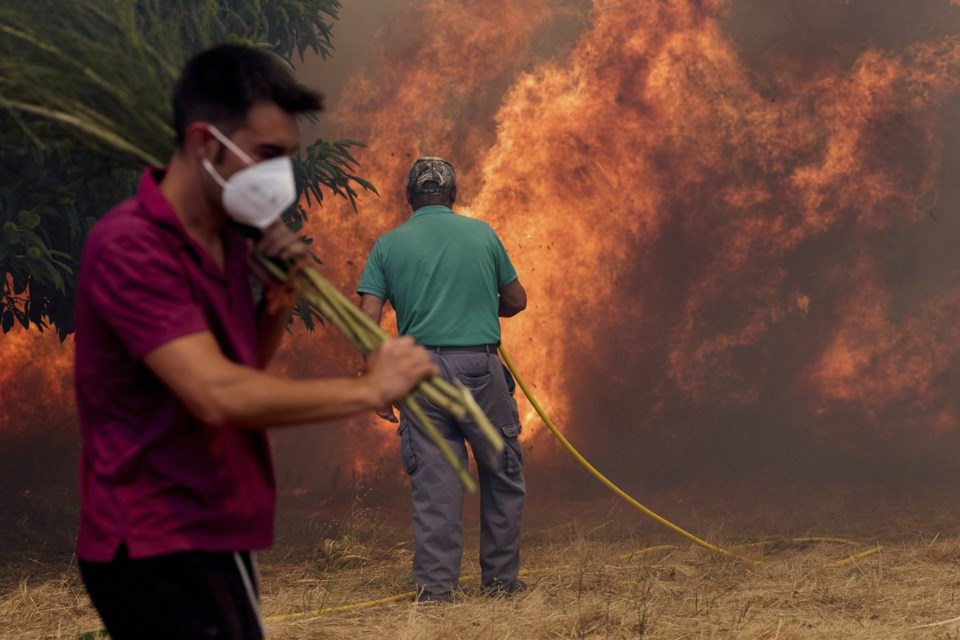MADRID (AP) — Spain tackled several major wildfires on Tuesday in one of the country's most destructive fire seasons in recent decades, despite temperatures dropping across the Iberian Peninsula.
Thousands of firefighters aided by soldiers and water-bombing aircraft fought fires tearing through parched woodland that were especially severe in northwestern Spain, where the country's weather agency AEMET reported a still “very high or extreme” fire risk — particularly in the Galicia region.
The fires in Galicia have ravaged small, sparsely populated towns, forcing locals in many cases to step in before firefighters arrive.
Firefighting units from Germany arrived in northern Spain on Tuesday to help fight the blazes, Spain's Interior Ministry announced. More than 20 vehicles were deployed to help fight an ongoing blaze in Jarilla in the Extremadura region that borders Portugal, the ministry said.
Spanish Prime Minister Pedro Sánchez visited the area Tuesday, where he spoke of the recent heat that has fueled the fires. Temperatures across Spain dropped by about 4 degrees Celsius (about 7 degrees Fahrenheit) on Tuesday after a 16-day heat wave with several days above 40 degrees Celsius (104 degrees Fahrenheit), Spain’s weather agency reported.
“Science tells us, common sense tells us too, especially that of farmers and ranchers, of those who live in rural areas, that the climate is changing, that the climate emergency is becoming more and more recurrent, more frequent and has an ever greater impact,” Sánchez said.
In Galicia, land management has also played a role; large stretches of unmanaged vegetation and depopulated villages in forested land have led to the build-up of wildfire fuel, said Adrian Regos, an ecologist at the Biological Mission of Galicia, a research institute.
The fires in Spain have killed four people this year and burned more than 382,000 hectares or about 1,475 square miles, according to the European Union’s European Forest Fire Information System. That surface area is more than twice the size of metropolitan London, more than six times the 2006-2024 average for land burned during the same period, according to EFFIS.
Air quality deteriorated across large parts of Spain over the past week as a result of the wildfires, data from the EU’s Copernicus climate monitoring agency showed. Smoke from the Iberian Peninsula fires reached France, the UK, and Scandinavia, it said.
Several fires have been triggered by human activity. Police have detained 23 people for suspected arson and are investigating 89 more, Spain's Civil Guard said Tuesday.
In Portugal, more than 3,700 firefighters were tackling blazes, including four major ones in the north and center.
Wildfires there have burned about 235,000 hectares or 907 square miles, according to EFFIS — nearly five times more than the 2006-2024 average for this period. Two people there have died.
Europe has been warming twice as fast as the global average since the 1980s, according to Copernicus. Scientists say that climate change is exacerbating the frequency and intensity of heat and dryness in parts of Europe, making the region more vulnerable to wildfires.
Suman Naishadham, The Associated Press




